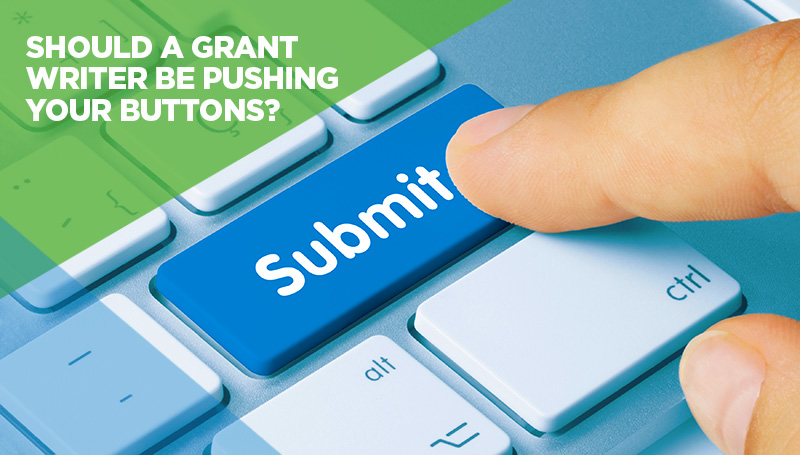Grant writers perform a multitude of tasks. It’s true, they do the things we expect them to, like researching and drafting proposals. However, they also do some tasks we don’t readily recognize, but boy are we glad they do. For example: they can locate potential funding opportunities, develop curriculums, serve as a liaison between you and your funder, and can follow up on application status. Grant Writers are generally flexible and those with experience wear a number of different hats for their clients. However, how far do the services of a grant writer extend? Specifically, can they, or better yet, should they submit grants on behalf of the clients? Read on to find out what GrantWriterTeam has to say on the matter.
The Short answer?
While a grant writer can submit a grant for you, we don’t recommend it. There are so many things you must factor into the decision that it’s usually just best to do the final edit yourself. If you have an in-house grant writer, this is not an issue. But most businesses and nonprofits cannot support employing a grant writer full-time time so they look to hiring qualified freelancers.
A fair amount of trust must be established since this professional writer needs to meet with representatives from various departments, must have access to your financials, and should be well-versed in your company’s daily culture. With collaborations, brainstorming sessions, data collection, and other activities going into the grant application process, your grant writer will become intimately acquainted with your company. So, why shouldn’t they submit the proposal? It’s really quite simple.
You should always have the final say. Submitting the application yourself ensures that the content accurately represents the needs, goals, and capabilities of the project or organization seeking funding. Besides, while your grant writer may be able to successfully tell your story to a funder, you are the person who knows every detail. Use that and think of this as the final step in potentially increasing your chances of securing funding.
It’s also good to consider that there is a different submission process to follow, depending on your funder.
Government Grants
If you are applying for a government grant, you will need to use their allocated online portal called the Workspace. To create a workspace account, you will need to be an authorized organization representative (AOR). After creating your workspace account, you can complete your application by either using the online forms or uploading and submitting your application. The process is very straightforward and video tutorials are available as a visual aid.
Alternatively, you could also download the application forms and email them to collaborators (such as a grant writer). Then, once completed, you can upload them back to the workspace. After successfully submitting a workspace application, a tracking number is automatically assigned to the application. You can then follow its process on the portal.
Foundation Grants
Each foundation will have its own submission process. They may use a third-party platform, or they may request for you to send it to an email address. In addition, the foundation may have it’s own on-portal for submission, prefer snail mail of or even rely on faxing. The method of delivery is solely at the discretion of the funder.
Here’s a good example of a scenario where you will want to be the final word: If the application is done through an online platform (similar to workspace), you will need to create an account. What’s more, if the grant writer were to complete this on your behalf, they would need your full information. Furthermore, they may possibly even need access to your email inbox — which will require them to know your username and password. We recommend against this.
On the other hand, does the grant application really need to be posted? Having the grant writer mail your proposal for you may be a convenient option. Nonetheless, you might prefer the certainty of doing it yourself.
The Bottom Line
As this is not a common practice, you should make it clear up front if you would like your grant writer to submit your grant application for you. Otherwise, the grant writer acts as a ghostwriter for you, and typically, it is up to you to upload and submit the finished product.
About GrantWriterTeam
Are you a nonprofit or small business in need of some help? If you are searching for grants but are feeling overwhelmed, hiring a grant writer may be the perfect choice for you! Grant writers thoughtfully grant opportunities and consider the pros and cons of applying and the chance of success. Consider your writer an extension of your organization. Your grant-seeking success is our priority at GrantWriterTeam.
Disclaimer: There is no guarantee that grants will be awarded as a result of this information.

Recent Comments